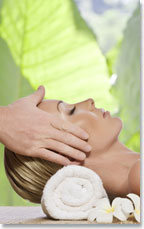 In scientific terms, stress is defined as the nonspecific response of the body to any demand made upon it. Even when it feels like stress originates in the mind, the body is responding to it.
In scientific terms, stress is defined as the nonspecific response of the body to any demand made upon it. Even when it feels like stress originates in the mind, the body is responding to it.
More important than finding a definition for stress is understanding the effect it has on our bodies. Stress-producing factors, or stressors, can be physical (exercise and injury), biological (viral, bacterial and fungal), environmental (heat and cold), situational (work and education), and relational (friends and family). While there are numerous sources of stress, the responses they elicit from the body are very similar. Things like temperature, emotions, and injury cause identical biochemical reactions in the body.
When we feel stressed, our heartbeat, breathing rate and blood pressure all go up. The longer we’re pressured by stress, the greater the demand on the body. Prolonged stress can lead to a wide range of physiological complications and psychological difficulties.
Many complementary and alternative therapies use mind-body medicine that focuses on the role of thoughts and emotions on physical health. These types of approaches can be especially beneficial for treating stress. Techniques like biofeedback, relaxation training, tai chi, yoga, and meditation affect the nervous system in ways that can reduce the effects of stress and help people cope.
Massage Therapy
Massage therapy is one of the oldest known therapies for improving psychological and physiological function. Science has documented the stress-relieving benefits of all type of massage therapy.
For many people, their place of employment is a stressful environment. A number of studies have found massage effective for relieving work-related stress. One study used blood pressure as a measure of the stress reduction with massage in the workplace. Fifty two participants had there blood pressure measured before and after a 15-minute massage at work. Analyses showed a significant reduction in systolic and diastolic blood pressure after receiving the massage.
Meditation
Whether practiced for spiritual reasons, relaxation, or for treatment of disease, meditation has been shown to be beneficial for stress reduction. A controlled study at the Medical College of Georgia found that 15 minutes of meditation twice a day reduced measures of stress with 35 adolescents.
There are many different types of meditation, including sitting, standing, and walking methods. While reducing stress, meditation has also been shown to improve attention, reduce anxiety, enhance cognition, and improve quality of life throughout the lifespan.
Whereas stress is a fact of life, being stressed out is a choice. We don’t always have control over what happens to us, and yet, we don’t have to overreact to difficult, challenging situations by becoming frazzled, overwhelmed, or distraught. Being overly anxious and allowing stress to take over is not just a mental hazard, it’s a physical one.